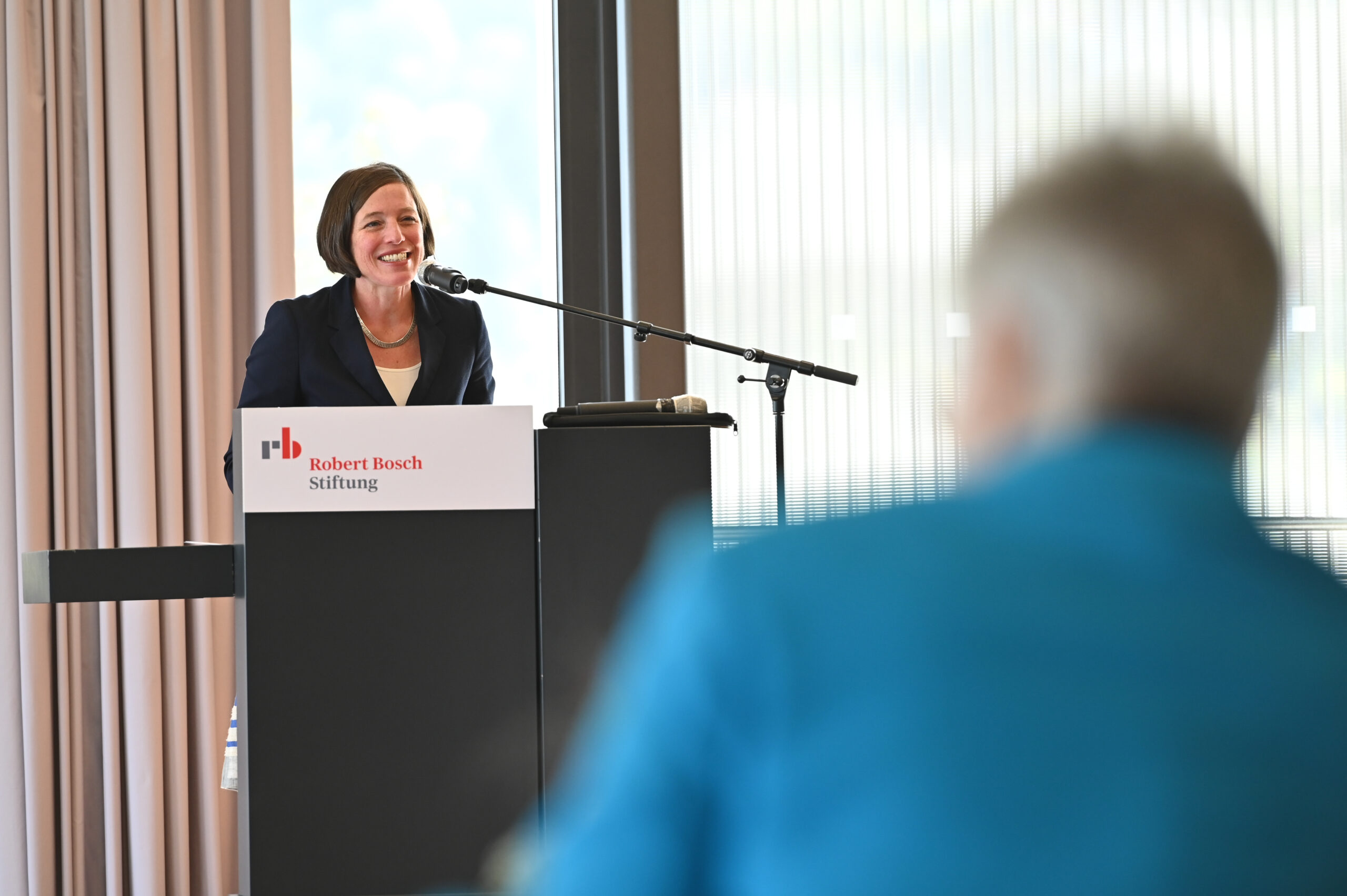The Robert Bosch Stiftung has long supported initiatives that advance progress on many aspects of life, from healthcare to education to international relations – and, since 2020, among other global issues, climate change and land restoration. Ottilie Bälz, a senior vice president of the foundation, stands as a key player in the foundation’s efforts.
From her childhood years playing in the outdoors to witnessing environmental degradation in Russia as part of her professional career, Bälz has been engaged with nature throughout her life, and she now brings this experience to her job overseeing the migration and climate change work of the foundation.
The causes of inequality, conflicts and migration are many, but they are all exacerbated by climate change. “Its impacts reinforce structural inequalities that already exist,” she says. “Wherever climate change encounters scarcity of resources, economic weakness and weak political structures, it can become a risk multiplier and driver of conflicts or involuntary migration.”
The foundation is, among others, partnering with the Global Landscapes Forum to establish five GLFx chapters in sub-Saharan Africa, working toward landscape restoration under the AFR100 initiative and promoting sustainable agroecological practices.
Although the Robert Bosch Stiftung is a new player in the restoration field, Bälz plans to use her longstanding expertise in migration, democracy and civil society to form a holistic approach to addressing the climate crisis: “We must make the transformation equitable. We cannot limit ourselves to issues of mitigation – we must focus on issues of resilience and adaptation.”




